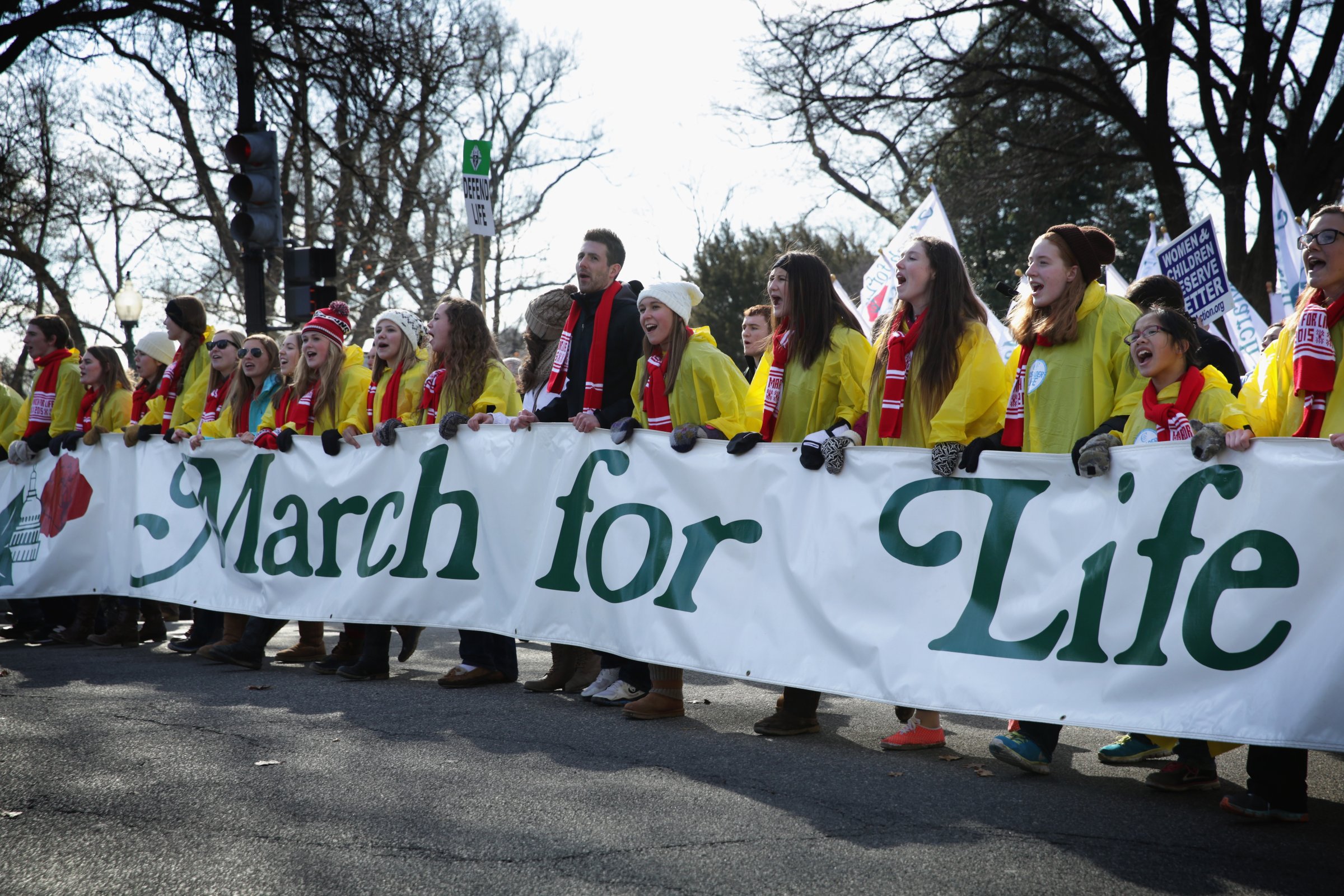
For more than 40 years now, Americans from all walks of life have journeyed to our nation’s capital in the middle of winter to rally around a common cause: the dignity and value of innocent human life. The annual March for Life event in Washington on Friday coincides with the Jan. 22, 1973, U.S. Supreme Court ruling in Roe v. Wade that invalidated state abortion laws across the country to make elective abortion the law of the land.
This year, as in years past, marchers will peacefully assemble by the tens of thousands on the National Mall to honor the more than 57 million lives lost to abortion; we will demand change. At its core, this movement is not political or even religious. It is a demand for justice, and it is an act of compassion—one that we fully embrace.
As women and mothers, we recognize the tragic deception of abortion, and we know women deserve better. We reject the lie that anti-abortion Americans are part of a “war on women” because we have seen true sexism up close and personal as we fought for our place in our respective careers. We know that abortion is not a means of female empowerment; it is a heartbreaking choice that ends one life and can damage another—and that is the true war on women.
Consider that, for 20 years, the pro-choice lobby has operated under the unofficial rallying cry of “safe, legal, and rare” abortion, yet just last fall the nation’s largest abortion provider—Planned Parenthood—tweeted a link to a story celebrating London’s “free and plentiful” abortions and birth control. Perhaps that is why Planned Parenthood, in a callous betrayal to women, has lobbied against informed consent laws across the country that would require full disclosure by a physician of the risks and side-effects of abortion.
We also oppose abortion because we are willing to look at the facts that the abortion lobby continues to ignore. For example, we know that premature babies have now been saved as early as 22 weeks into fetal development, that the U.S. remains one of only seven nations to allow elective, late-term abortions, and that abortions worldwide disproportionately discriminate against baby girls.
The anti-abortion movement is well-founded in logic and common sense, but perhaps its greatest supporting force is love. The individuals who show up every year for the March for Life rally—many of them women and families—share a fundamental belief that life is precious and that someone must speak up for the most innocent among us, too many of whom are lost daily to the tragedy of abortion.
It is for these reasons that we fight for legislation like the Pain-Capable Unborn Child Protection Act, a bill to protect mothers and unborn children from dangerous, late-term abortions, an idea supported by the majority of Americans.
It is why we continue to demand passage of measures like the Defund Planned Parenthood Act, which would divert federal funding away from the nation’s largest abortion provider and reallocate it to the more than 13,500 community health centers nationwide providing comprehensive healthcare to low income and underserved women.
It is why we stand shoulder to shoulder with charities such as Little Sisters of the Poor as they defend the sanctity of life in the courts by challenging Obamacare’s unconstitutional mandate that employers cover life-ending drugs and devices in their health insurance plans.
And it is why we will not give up.
Roe v. Wade leaves a sad legacy in its wake. The lives lost are many, the emotional and physical damage to birthmothers is real, and the obstacles in our fight to restore a culture of life still loom large—the taxpayers continue to subsidize Planned Parenthood with about $1.5 million per day—but every person who shows up at March for Life represents a reason to be hopeful.
We know that as advances in science and technology continue to legitimize our movement, and as more hearts and minds are reached with the truth about abortion, laws will be changed and lives will be saved.
On this somber anniversary, our prayer is that lawmakers would look at this age-old issue with new eyes and with softened hearts, and that the American people would feel a renewed hope that our great country will see a day when every person is welcomed in life and protected in law.
More Must-Reads from TIME
- Why Trump’s Message Worked on Latino Men
- What Trump’s Win Could Mean for Housing
- The 100 Must-Read Books of 2024
- Sleep Doctors Share the 1 Tip That’s Changed Their Lives
- Column: Let’s Bring Back Romance
- What It’s Like to Have Long COVID As a Kid
- FX’s Say Nothing Is the Must-Watch Political Thriller of 2024
- Merle Bombardieri Is Helping People Make the Baby Decision
Contact us at letters@time.com